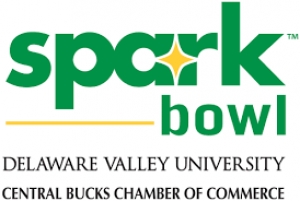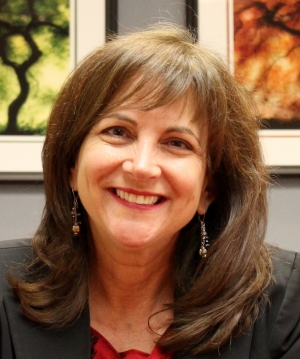The Spark Bowl at Delaware Valley University: A Business Lawyer’s on Take Entrepreneurship
As a business lawyer, I have spent years counseling small to mid-sized companies across a wide range of industries. I have advised clients on routine to complex business legal issues that arise during the start-up stage through operation and growth stages, and have structured many exit strategies and created successful succession plans in various ownership documents. What I love best about providing sound legal guidance to business owners through the life cycle of their business is helping them solve issues that arise both from a legal perspective and also from a financial perspective. Helping clients navigate through contractual, employment, finance, IP protection, and other daily issues so they can focus on achieving their goals of growth, maximization of profits, and sustainability, all while minimizing their potential for risk and exposure is a vital objective in my practice.
I have recently been invited to participate for the next several weeks as an advisor in an exciting new local event – The Spark Bowl. Co-sponsored by Delaware Valley University, it’s Small Business and Entrepreneurship Center and the Central Bucks Chamber of Commerce, this event is a local competition aimed at fostering innovation, growth, and entrepreneurship. At the First Annual Spark Bowl event to be held on December 11th, students and local entrepreneurs in and around Bucks County will “pitch” their businesses plans to Spark’s judges, who will select a winner who will receive prizes and benefits to include monetary funding as well as access to expert advisors. The contest will be judged by experienced investors who have a desire to support innovation and economic growth and prosperity within the local community. As part of DelVal’s experiential learning program, DVU student teams will work with final contestants to prepare for the competition under the guidance of DelVal faculty and SBEC advisors. Professor William Viel of DVU’s Business and Information Management Department is the Director of the SBEC. It is quite a valuable resource to this community to have such an incubator right here in Central Bucks. Please click here to learn more about The Spark Bowl at Delaware Valley University.
After many years of working with business owners, some who were successful, and some who were not, it seems evident that the best predicator of sustainable business growth and success is: planning by asking the right questions up-front; creating detailed business plans and product or service models; determining the expected demand for their product or service in a low or highly competitive market; understanding both traditional and non-traditional financing alternatives; putting together the right team of professionals to help them produce, deliver and promote their business and its products/services; dealing with operational challenges and various levels of legal compliance properly, all while being willing to assess weaknesses and promote strengths.
The Spark Bowl has inspired me to remind my clients to think about why they are doing what they are doing, as they work through the day-to-day challenges (legal and otherwise) of operating and sustaining a business they built and love.
Good Luck to all the participants on December 11th!
CROWDFUNDING OR CROWDFOOLERY?
Part 1 of 3 Part Series:
General Rules
After years of hand-wringing and speculation by entrepreneurs, re-occurring angels, venture capital firms, registered brokers and lawyer types involved with private placements, on October 30, 2015, the U.S. Securities and Exchange Commission (SEC) finally adopted equity crowdfunding rules pursuant to Title III of the Jumpstart Our Business Startup Act of 2012 (JOBS Act). These rules, which rely on Section 4(a)(6) of the Securities Act, are scheduled to be issued in the Federal Register early in 2016 and will become effective 180 days after publication.
Assuming the issuer is not otherwise ineligible, the crowdfunding rules will permit the following:
• A company can raise a maximum aggregate of $1 million through crowdfunding offerings in a 12 month period.
• Individual investors can invest an aggregate sum, over a 12-month period, in any number of crowdfunded offerings, based on the following formulas:
1. If either the individual’s annual income or net worth is less than $100,000, s/he can invest the greater of $2,000 or 5% of the lesser of his/her annual income or net worth.
2. If both his/her annual income and net worth are equal to or more than $100,000, s/he can invest 10% of his/her annual income or net worth, provided that the total investment does not to exceed $100,000.
Not all companies can rely on crowdfunding under the final rules. If the issuer is (i) not organized under the laws of a state or territory of the United States or the District of Columbia; (ii) subject to the Securities Exchange Act of 1934 reporting requirements; (iii) an investment company as defined in the Investment Company Act of 1940, or a company that is excluded from the definition of “investment company” under Section 3(b) or 3(c) of that act; (iv) has a “bad actor” in management or as a major equity holder; (v) has sold securities in reliance on Section 4(a)(6) and failed to make the required ongoing reports within the two-year period before the proposed new offering; or (vi) is a development stage company that has no specific business plan or purpose or does not identify a proposed merger or acquisition target.
The new rules include detailed provisions relating to mandatory disclosures and other requirements, which will be discussed in subsequent posts on this blog.






















